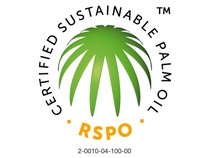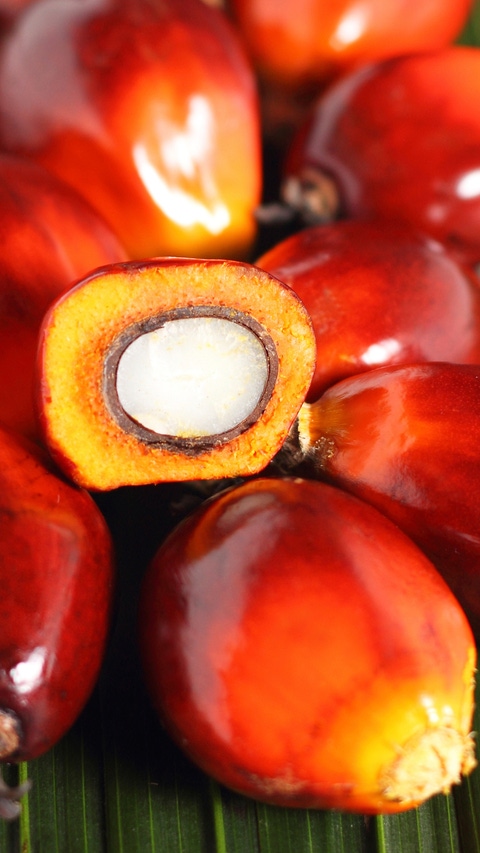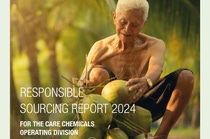Sustainable palm oil
BASF is dedicated to transforming the market for certified sustainable oil palm products. We have been an active supporter of the Roundtable on Sustainable Palm Oil (RSPO) since 2004 and promote the physical transformation of the industry. Palm oil, palm kernel oil and their respective derivatives are valuable raw materials for home and personal care ingredients.
Year-to-date progress
The RSPO is a multi-stakeholder forum that aims to “make sustainable palm oil the norm.” It’s more than 5,000 members are drawn the 7 sectors of the palm oil industry: oil palm producers, processors and traders, consumer goods manufacturers, retailers, banks and investors, and environmental and social NGOs to develop and implement global standards for sustainable oil palm.
Established in 2016, the BASF Palm Dialog is a platform to discuss topics relevant for the industry with representatives from the entire supply chain. In recent years, we have discussed solutions and possible ways forward with participants from industry, retail, associations and NGOs.
Palm kernel oil and, to a lesser extent, palm oil are among our most important renewable raw materials. We use these raw materials primarily to produce ingredients for the cosmetics, detergents, cleaners and food industries. Oil palms have the highest yield per hectare compared to other industrially used oil producing crops, so palm oil requires significantly less land to grow the amount of raw material needed. Oil palm products also reduce poverty by providing income for millions of farmers and their families. And with its unique chemical properties, palm kernel oil is particularly difficult to substitute. We are striving to ensure that palm-based raw materials come from certified sustainable sources.
To this end, we have supported the Roundtable on Sustainable Palm Oil (RSPO) since 2004 and see the RSPO as a standard implementation of a strong No Deforestation, No Peat, No Exploitation (NDPE) policy. We purchased 213,000 metric tons of palm oil and palm kernel oil in 2024.
In 2024, we’ve sourced 98.1% of our palm oil RSPO-certified. By the end of 2024, we were able to trace 96.7% of our global palm footprint back to the oil mill level.
Moreover, we continued to drive forward the RSPO supply chain certification of our cosmetic ingredients sites. By the end of 2024, 25 production sites worldwide were certified by the RSPO. In line increased sustainability awareness, we continue to see growing demand from our customers for certified palm-based products. BASF offers a very broad range of ingredients based on RSPO-certified sustainable palm (kernel) oil in accordance with RSPO principles and criteria.
Since the launch of certified ingredients in 2012, BASF has been continuously working towards a comprehensive global product range that will enable consumer goods manufacturers to develop value adding formulations that meet the growing demand for ingredients that are certified as sustainable. The annual BASF Responsible Sourcing Report (former “Palm Progress Report”) shows our actions and progress towards more sustainability and transparency in the value chain.

Our Challenge
Palm oil and palm kernel oil are very versatile vegetable oils, and oil palm trees produce higher yields per hectare than any other oilseed. These facts, combined with relatively low production costs, explain why these vegetable oils are so popular.
However, the palm oil supply chain is complex, with challenges related to the environment, human rights, economics in developing countries and international trade.
Over the past years, our focus has been on certified sustainable palm kernel oil. We have used our certified supply chains to improve traceability.
Unlike certified palm oil, the availability of certified sustainable palm kernel oil is still limited.
That is why we at BASF support market transformation through certification. For us, certification is the key to sustainable palm cultivation. The RSPO certification process is currently the world’s most transparent and effective initiative to improve the entire palm oil sector. It provides the necessary infrastructure to monitor the market transformation in a transparent way. However, holistic progress requires the collaboration of all partners in the value chain.

Our Palm Commitment
We are passionate about ensuring that our products are made from sustainably sourced raw materials. We have made progress on our journey to sustainable oil palm products: We actively support the use of palm and palm kernel oil from sources certified by the Roundtable on Sustainable Palm Oil (RSPO). In 2015, we renewed and expanded the BASF Palm Commitment. With the BASF Palm Sourcing Policy, we have published a purchasing guideline for palm oil products that includes forest conservation requirement regarding the high carbon stock and peatland (as defined by the High Carbon Stock Approach). Additionally we have incorporated requirements for a “Free, Prior Inforemd Consent” (FPI) as well as labour and human rights into our Palm Sourcing Policy.We drive the traceability of our oils back to the mill level and support smallholder farmers.
Due to the insufficient availability of RSPO-certified palm kernel oil, it is foreseeable that we will not be able to achieve our previous target for 2025. We are therefore adjusting our target of sourcing the main palm oil and palm kernel oil derivatives as 100% RSPO-certified products from 2025 to 2030.
According to our plans we intend to
- since 2020 – source 100% certified sustainable palm and palm kernel oil
- by 2030– expand these commitment to the significant intermediates based on palm oil and palm kernel oil. These include fractions as well as primary oleochemical derivatives plus vegetable oil esters.
RSPO remains a preferred certification standard. In cases, where alternatives are considered, they must demonstrate equivalent rigor focus on environmental protection, labor rights, and human rights.
The Palm Commitment will remain subject to availability and economic feasibility.

Check out our progress at rspo.org
Smallholder engagement as an integral part of sustainable palm oil production: Smallholder project partnerships allow BASF to support these farmers while increasing the availability of sustainably produced palm oil, e.g. by providing ongoing training and technical support to implement and maintain sustainable palm oil practices, and to promote a sustainable palm oil supply chain that is deforestation-free and competitive in the global market, while increasing the social and economic benefits for farmers.

